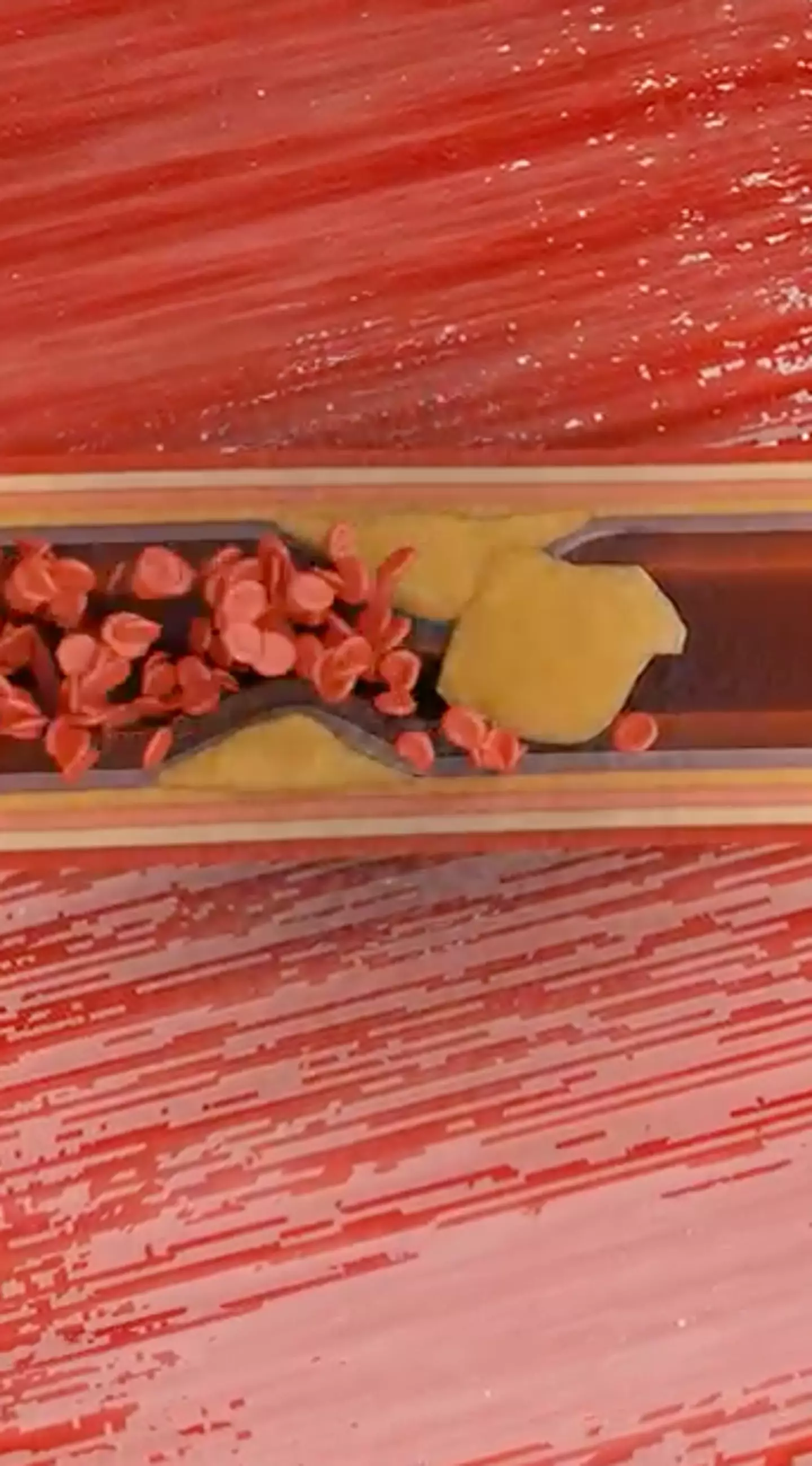
A sobering simulation video shows what can happen to the inside your body if you have heart attack.
The British Heart Foundation (BHF) reports that heart and circulatory diseases cause a quarter of all deaths in the UK, equating to over 170,000 annually.
“Coronary heart disease (CHD), also known as ischaemic heart disease, is the most common type of heart disease,” according to the BHF.
“It is the most common cause of heart attack and was the single biggest killer of both and men and women worldwide in 2019.”
Advert
To help you know what to look out for, YouTube channel The Body Doc has shared a visualisation of what happens to character 'Mike's' body during a heart attack.
A Short posted on the 3D animations page shows Mike 'about to face something millions experience every year'.

"Over time, fatty plaques have silently narrowed Mike's arteries," The Body Doc voice-over says.
"Blood is struggling to flow. When a plaque ruptures, a blood clot forms.
"It blocks blood flow to Mike's heart, starving it of oxygen.
"Without oxygen, Mike's heart muscle is dying.
"This causes severe chest pain, shortness of breath, and radiating heart pain.
"If blood flow isn't restored soon, the damage could be fatal. This is what happens during a heart attack."
Causes of a heart attack
Heart attacks occur when the blood supply to the heart is suddenly interrupted.
"Without this supply, heart muscles may be damaged and begin to die," the NHS explains.
"Without treatment, the heart muscles will experience irreversible damage.
"If a large portion of the heart is damaged in this way, the heart stops beating (known as a cardiac arrest), resulting in death."

Your risk of CHD increases by the following:
• smoking
• a high-fat diet
• diabetes
• high cholesterol
• high blood pressure (hypertension)
• being overweight or obese
The health service notes that a less common cause of heart attacks is a lack of oxygen, also known as hypoxia.
"If levels of oxygen in the blood decrease due to carbon monoxide poisoning or a loss of normal lung function, the heart will not receive enough oxygenated blood," they added.
"This will result in the heart muscles being damaged, triggering a heart attack."
Heart attack symptoms
It is recommended to call 999 if you have sudden, persistent chest pain or discomfort that spreads to the arms, neck, jaw, back or stomach.
This includes if you feel sweaty, sick, light headed or have shortness of breath.